
NO&T Asia Legal Review
With a series of advantages such as flexibility, confidentiality, impartiality, arbitration is a dispute resolution method commonly being used by parties in commercial disputes. In the global trade market, where there are increasing international commercial disputes, the settlement of disputes by foreign-seated arbitration is unavoidable and indispensable. However, in principle, a foreign arbitration award cannot be immediately enforced in Vietnam without being approved by a Vietnamese court for recognition and enforcement under the provisions of the Vietnamese Civil Procedure Code. There are many cases where foreign arbitral awards are not recognized and enforceable in Vietnam, based on the legal basis specifically listed in Article 459 of the Vietnamese Civil Procedure Code.
According to the database regarding the recognition and enforcement of foreign court judgments and arbitral awards in Vietnam, from 2012 to 2019, published by the Ministry of Justice of Vietnam, there were 83 arbitration awards filed for recognition and enforcement in Vietnam. However, 30 awards (equivalent to 36%) were rejected, while 12 other cases of request consideration were terminated. It also should be noted that there is a case where the court terminated the request consideration regarding the recognition and enforcement of an arbitration award because the person signing the petition to the court was the chief attorney of the law office and not the legal representative of the petitioner. This violates the provisions of Article 362.2.g of the Vietnamese Civil Procedure Code regarding the signatories of a lawful representative of the requester.
Based on the contents of such a database, especially in relation to commercial disputes between entities, the following are the most common reasons why foreign arbitral awards are not recognized by Vietnamese courts.
Article 142 of the Vietnamese Civil Code stipulates that, in principle, “Civil transactions established and/or performed by persons without the right of representation shall not give rise to rights and obligations of the represented persons”. Besides, Article 137 of such Civil Code also provides that: “The legal representatives of legal persons include a/ Persons appointed by the legal person in accordance with its charter; b/ Persons competent to represent in accordance with law; c/ Persons appointed by the court during procedures at the court.”
In other words, if a party to the arbitration agreement is a Vietnamese company, in accordance with Article 142 of the Vietnamese Civil Code – which is the applicable law to the Vietnamese party, the signatories of such arbitration agreement must be the legal representatives or authorized representatives of such legal representatives.
However, there are many real-life examples of arbitral awards not being recognized due to violations of such clear provisions, in detail:
It seems some parties ignore or miss to confirm the signatories’ authority because the parties have already signed other contracts with the same signer and executed them for a long time, thus, they claim that this should be recognized as customary practice. On the other hand, the Vietnamese Court has affirmed that under Article 45.1 of the Vietnamese Civil Procedure Code, customary practices are applicable in case the parties have no agreement and such case or matter is not regulated by law. Meanwhile, Article 140 of the Civil Code contains legal provisions on legal representatives. Therefore, when signing an agreement/contract, especially with a Vietnamese legal entity, it is necessary to confirm its legal person status, signer’s information and authority, and registered address, emails.
Another interesting example in which arbitration agreement was not recognized is a dispute regarding an equity transfer contract. In this case, an article stipulated that such contract shall terminate if not all of the conditions precedent are satisfied, and the non-breaching party has the right to claim compensation or initiate a court action. Meanwhile, another article (Article 13) of such contract stipulated that the contract shall be governed by Vietnamese law and disputes shall be settled by arbitration. However, there was a prior effective court judgment declaring Article 13 null and void. Therefore, the conclusion was that this dispute could not be resolved by arbitration.
The Vietnamese court gave some specific reasons to clear their point that the respondent/obligee was not promptly and properly notified including the improper sending of the relevant documents, correspondence, and notices from the judgement creditor or the arbitral tribunal as follows:
Once again, determining the correct background information of the parties in the dispute has shown its importance for the arbitration award to be recognized for enforcement in Vietnam. In Vietnam, company information such as head office address, legal representative, email address, etc. is registered and posted publicly and clearly on the official website of the National Business Registration Portal. Therefore, to avoid similar mistakes, the arbitral tribunal and related parties need to verify and send correspondence and documents to the registered addresses and the proper recipient.
This is the reason given in six rejected cases. According to the above mentioned database, listed violated principles include: individuals and legal persons may establish, perform and terminate their civil rights and obligations based on free and voluntary commitment and agreement. (Article 3.1 of the Civil Code), equality in rights and obligations in civil proceedings (Article 8 of the Civil Proceedings Code), not applying any specific legal provisions of Vietnam when making the judgment (Article 11 of the old Civil Code). The generic definition of “contrary to the basic principles of Vietnamese law” under relevant regulations has become a controversial topic because of its ambiguity. However, a significant number of arbitral awards have not been recognized not only for this reason but also for other reasons as described in 1. and 2.
In addition, there are several reasons for non-recognition of arbitral awards such as settling disputes beyond arbitrator’s jurisdiction, violating the arbitration proceedings (the arbitration center appointing an arbitrator when the parties have not been consulted), expiration of statute of limitation for requesting recognition and enforcement. The Vietnamese court also rejected an arbitration award because the copy of the arbitration agreement submitted to the court is not copied from the original. However, the most indirect and direct reasons why many foreign arbitral awards are not recognized and enforceable in Vietnam are the violations in signatories’ authority of the arbitration agreement, and the failure to send the relevant notifications/documents promptly and properly.
In light of the above observations, it is recommended that parties seeking to enforce foreign seated arbitration awards in Vietnam pay heed to the above and ensure that appropriate steps are taken to ensure that the arbitration agreement is executed by a person with appropriate legal authority and that all relevant documents are sent at the correct address and addressee.
This newsletter is given as general information for reference purposes only and therefore does not constitute our firm’s legal advice. Any opinion stated in this newsletter is a personal view of the author(s) and not our firm’s official view. For any specific matter or legal issue, please do not rely on this newsletter but make sure to consult a legal adviser. We would be delighted to answer your questions, if any.
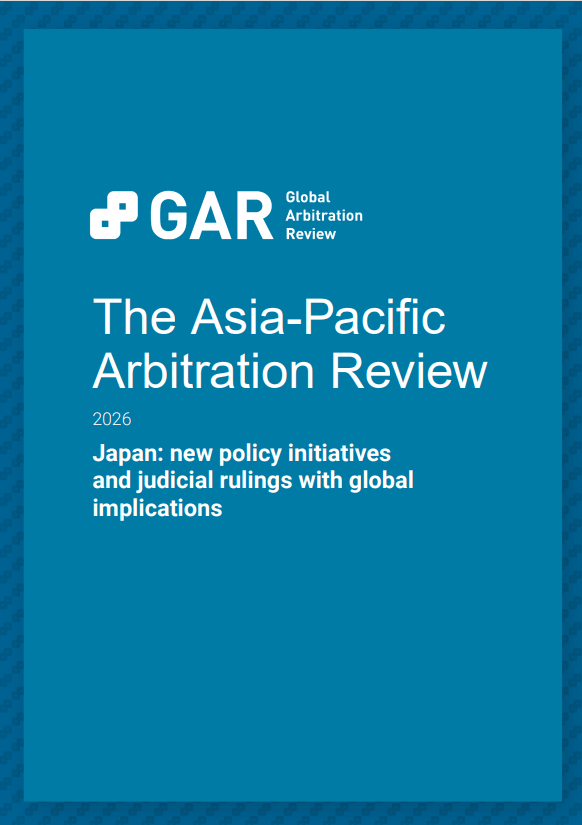

(May 2025)
Yoshimi Ohara, Shota Toda, Annia Hsu (Co-author)


Patricia O. Ko


Hiroki Tajima
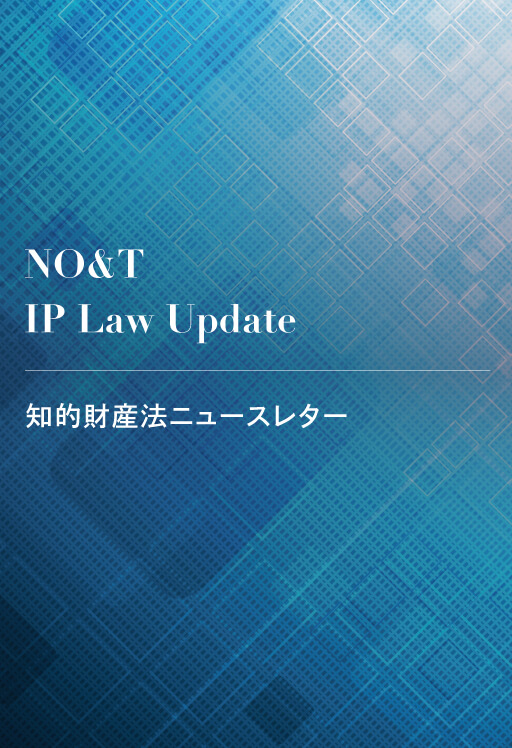

Kenji Tosaki, Takahito Hirayama (Co-author)


(May 2025)
Yoshimi Ohara, Shota Toda, Annia Hsu (Co-author)
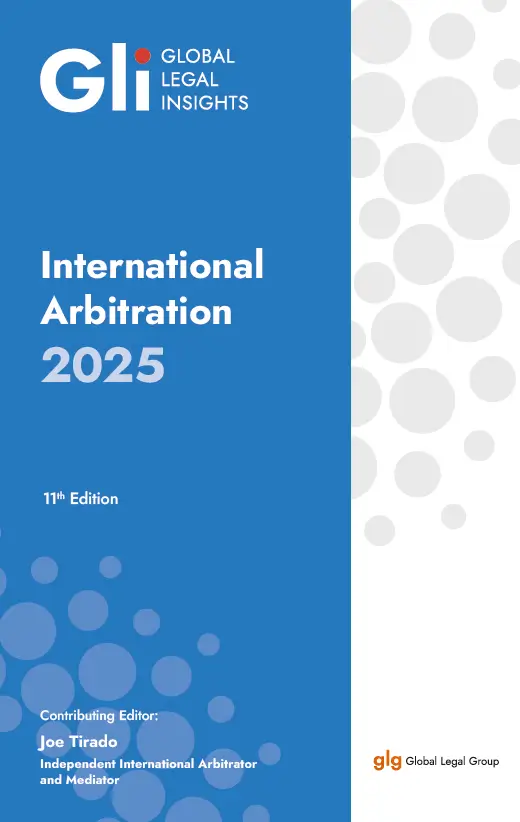

(April 2025)
Kaori Sugimoto, Shota Toda, Kennosuke Muro (Co-author)


Kara Quek, Kennosuke Muro (Co-author)
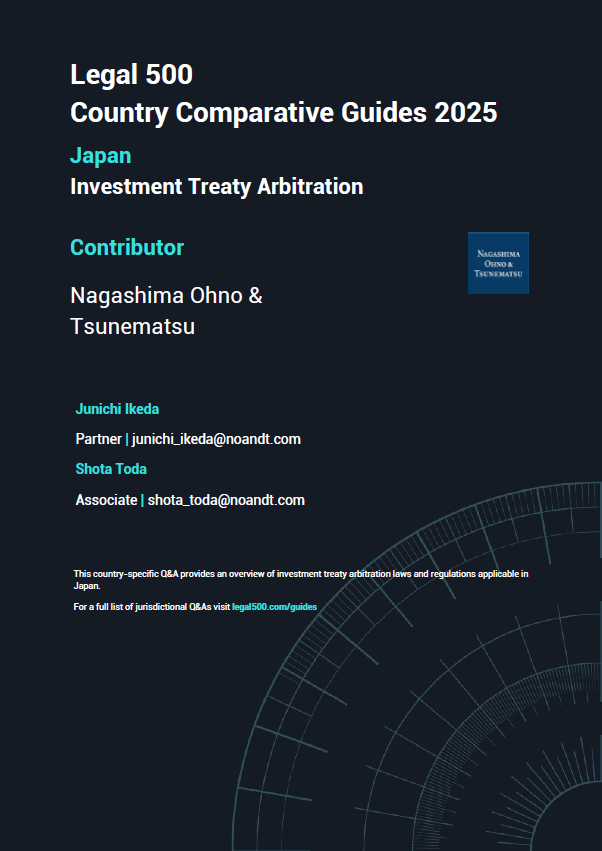

(March 2025)
Junichi Ikeda, Shota Toda (Co-author)


Ngoc Hoang


(February 2025)
Oki Osawa (Comments)
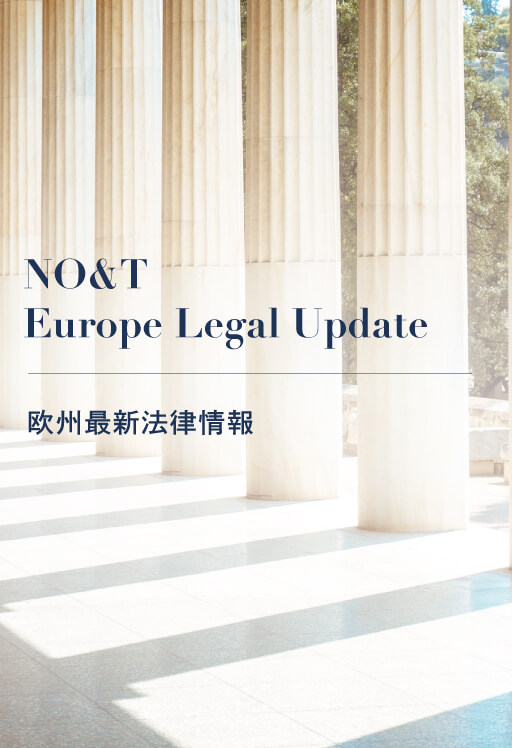

Axel Kuhlmann, Makoto Ohnuma, Shejal Verma, Sofía Terol Cháfer (Uría Menéndez) (Co-author)


Yuan Yao Lee


Patricia O. Ko


Ngoc Hoang


Yuan Yao Lee


Chattong Sunthorn-opas, Thunsinee Sungmongkol (Co-author)


Patricia O. Ko


Ngoc Hoang


Yuan Yao Lee


Chattong Sunthorn-opas, Thunsinee Sungmongkol (Co-author)


Ngoc Hoang


Long Nguyen


Nga Tran


Hoai Tran